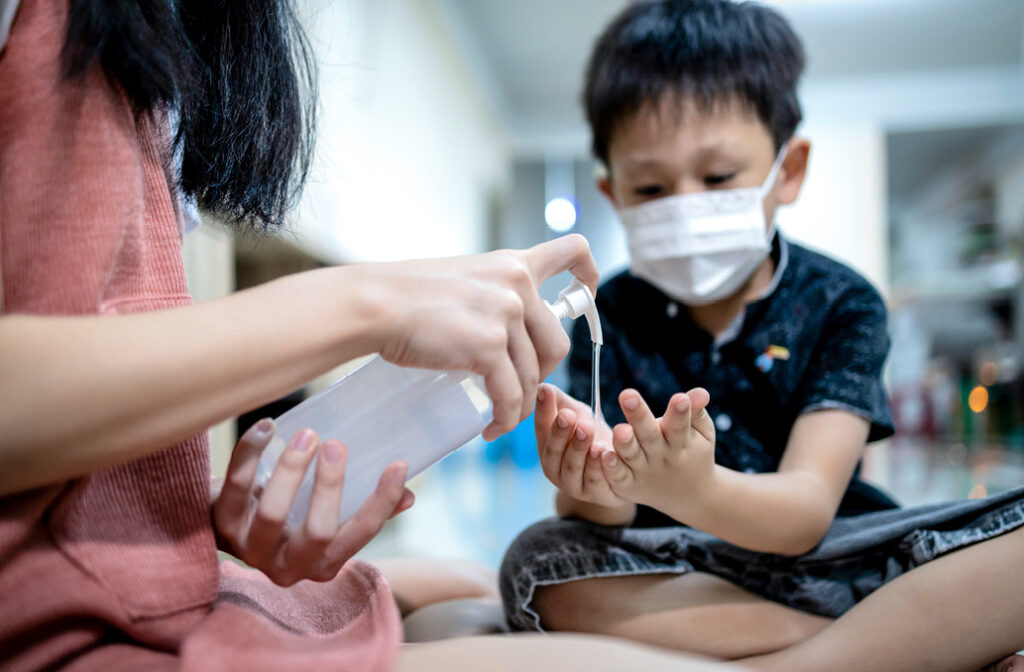The pandemic is an excellent opportunity to truly instill good, hygienic practices till they are embedded into our so-called norm

BY ASSOC PROF DR TAN TOH LEONG

AND DR NURUL HUDA AHMAD
Almost three years after the first case of Covid-19 was diagnosed, we have observed how our lives have changed and more importantly, how new practices have been adopted.
With every pandemic, a lesson in hygiene is retaught and in the case of Covid-19, the lessons rang loud and clear – vaccines work, effective handwashing is key and mask-up whenever and wherever necessary. The lessons are even more hardwired among healthcare practitioners, who have had to “suit up” in their personal protective equipment, adding steps in their care in a contagious era.
 These measures were of course necessary and have helped us all curb the illness in the best way we can. Once the population had reached herd immunity through the vaccines, the measures were relaxed. Masking up, especially, was seen as no longer necessary.
These measures were of course necessary and have helped us all curb the illness in the best way we can. Once the population had reached herd immunity through the vaccines, the measures were relaxed. Masking up, especially, was seen as no longer necessary.
However, we seem to conveniently forget that contagions still exist. Bugs are not limited to the coronavirus and the practices we had so obediently adhered to should be kept rather than abandoned since these practices can still apply to all droplet-transmitted diseases.
Pandemic fatigue
This was particularly apparent during the recent wave of Influenza A virus, when many exhibited the signs of upper respiratory tract infections but tested negative for Covid-19. Given that the mode of transmission is similar, the preventive measures for Covid-19 would also apply to Influenza A. But the fact that many contracted the virus anyway goes to show that these measures may have been taken lightly. In Negeri Sembilan alone, over 15,000 cases of influenza-like illness were reported between Jan 1 and July 9, 2022.
What may be the cause of this lax in practising good preventive measures of droplet-borne diseases? One glaring reason could be pandemic fatigue.
After two years of uncertainties and constant lockdowns, people are eager to “return to the old norm.” This is understandable but perhaps, we as a society may have missed the opportunity to truly instil good, hygienic practices until they are embedded into our so-called norm.
A lifestyle change
Granted, some may have walked away from this pandemic changed for the better but some have already regarded it as a faraway event that they want to quickly forget – along with the practices they felt were forced upon them rather than something that they should carry with them, moving forward.
The question then becomes: whose responsibility was it to drill these practices to the point of being a lifestyle change? The answer is of course, all of us.
From healthcare practitioners to teachers to food and beverage (F&B) workers, instilling good practices and preventing another pandemic is a collective responsibility. Failure to do this has already resulted in the anti-vaccine movement, when rumours travel faster than facts. And before we knew it, the poison of false information had already seeped into society.
We must remember that any form of infection lends to the risk of sepsis; constant reminders of the dangerous effects of sepsis may lead to the preventive measures being practised wholesomely once more. We must not mistake raising awareness with fearmongering, but we must also be more proactive in these constant reminders.
Diseases come and go but good practices must be here to stay. – The Health
Assoc Prof Dr Tan Toh Leong is Senior Lecturer and Consultant Emergency Physician, Universiti Kebangsaan Malaysia Medical Centre (UKMMC) and President and Founder of Malaysian Sepsis Alliance (MySepsis) while Dr Nurul Huda Ahmad is a Lecturer and Emergency Physician, Universiti Teknologi MARA (UiTM) and Vice-Secretary of MySepsis.








